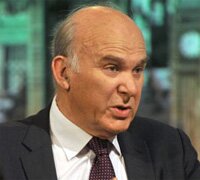Meow meow: Why our drugs policy is wrong-headed
So-called “mephedrone”, or “4-MMC” (to reflect its chemical composition) or “meow meow” (to reflect what gullible journalists will believe) has been causing a stir everywhere.
Pretty much every mainstream media outlet has run scare-mongering stories about 4-MMC, from the supposedly sensible-about-drugs Observer to the hysterically shrill ban it ban it ban it! Daily Mail.
Leftist bloggers with brains, like Left Outside and Septicisle, have been doing a stirling job of putting their heads in their hands and moaning softly about the unfolding Kafkaesque nightmare of epic stupidity and lies. (Read this and this, and then also these).
Something both have picked-up on is the possibility of a fourth drug classification, in which “new” substances could be put until proper scientific tests can be undertaken to ascertain exactly what they do.
continue reading… »
Dr Feelgood
Dear Readers,
I thought I had a terrible disease. I went to see 99 doctors, and they all told me roughly the same thing. That if I act fast and change my lifestyle in key ways I can avert the worst. But if I carry on as I am, I am going to get very, very sick. It’s not clear but I might even die. Or so they say.
Of course there are discrepancies between the exact diagnoses and projections each doctor gives me – but I guess that’s only to be expected, as medical science is a tricky thing.
Or is it? continue reading… »
Cameron’s gay rights gaffe
David Cameron recently stumbled his way through an interview with the Gay Times.
But interestingly, it wasn’t just the liberal-left media which reported this. Sky News and ITN covered the story, which originally broke into the mainstream via Channel 4. These news channels are hardly known for their pioneering pro-gay rights agenda – but they’re all carrying the story. Perhaps more surprisingly, the right-wing Telegraph is carrying the story on its news pages with a fairly critical angle, whilst The Times news blog declared “Cameron loses plot in gay interview”.
What’s especially significant here is both that the story is being widely covered, and that Cameron is being widely criticised. Not just for his indecision, but also for the fact Tory MEPs are apparently supporting homophobic actions in the European Parliament. This – as well as Cameron’s inability to answer questions about gay rights in a satisfactory manner – is being criticised across the political spectrum. That Cameron felt the need, post-interview, to re-iterate a Tory “commitment” to gay equality indicates that this was a major slip-up.
What does this tell us? Most importantly, that being homophobic is no longer publicly acceptable in our society. continue reading… »
EDL, The Police and our Misleading Mainstream Media
The mainstream media reporting on Saturday’s English Defence League and Unite Against Fascism demonstrations in Bolton has proved worryingly misleading. It indicates that important lessons must be learned by UAF and all those who oppose the growth of the far-right EDL.
Frustratingly I was stuck in a 2-hour tailback on the M6 on Saturday morning, so missed the first stages of the counter-demo. However, I’ve been able to piece together the following from speaking to people in the afternoon and from media reports (though more on whether to trust those later).
Essentially, the EDL and UAF demos were scheduled to begin around 1pm. Greater Manchester Police had established two distinct protest areas for each group, separated by barriers (and later by police with dogs standing between the barriers). However, UAF protestors attempted to occupy the entire protest area in the morning, in a bid to deny the EDL the ability to protest at all. The police response was one of zero-tolerance: riot police and horses were sent in, and the area cleared. The majority of UAF arrests – that have been so publicised in the media – were therefore made in the morning before the EDL had arrived. Certainly, I only saw one arrest in the entire course of the afternoon, and nothing like the 55 reported. continue reading… »
Teenage girls have sex. Get over it.
We recently reported the hilarious, if disturbing, remarks of Tory MP Tim Loughton:
“We need a message that actually it is not a very good idea to become a single mum at 14. [It is] against the law to get pregnant at 14. How many kids get prosecuted for having underage sex? Virtually none. Where are the consequences of breaking the law and having irresponsible underage sex? There aren’t any.”
So, The Guardian asked, should there be prosecutions?
“We need to be tougher. Without sounding horribly judgmental, it is not a good idea to be a mum at 14. You are too young, throwing away your childhood and prospects of developing a career.”
Without sounding horribly judgmental, anybody who thinks that there are no consequences to getting pregnant, and that a criminal record promotes a happy childhood and helps develop a healthy career, is a Platinum Imbecile.
Platinum Imbecility aside, there’s something to note about the bizarre universe Mr Loughton resides in: girls get pregnant by magic. continue reading… »
How a Stupid Row About Facebook Distracts From Police Failure
When the Metropolitan Police shot the innocent Jean Charles de Menezes in the head, seven times, we didn’t get the truth. We got anonymous sources briefing the media that de Menezes had run away from police, that he’d leaped the barriers at Stockwell tube, that he’d been wearing a heavy coat thought to be concealing a suicide bomb. It was all spin – or as it used to be called, lies.
Luckily for the police it distracted the press for a long time – at least until an inquest was finally able to white-wash the case.
When a Met officer struck newspaper vendor Ian Tomlinson with a baton and pushed him to the ground without provocation, we didn’t get the truth. After Tomlinson collapsed and died, the police briefed the media that Tomlinson was a rowdy protestor, that he suffered a heart attack, and that G20 protestors pelted an ambulance with bottles as it struggled to reach the dying man.
It was all lies – but almost all the MSM swallowed it, at least until The Guardian obtained damaging video evidence to the contrary.
So we know that the police lie when they mess up. By now, you’d hope the media would be alive to their tricks. Sadly not. continue reading… »
Can Patriotism Combat Islamophobia?
Last night the Muslim Council of Britain held a special closed-meeting of parliamentarians, journalists, police, public servants, community representatives, academics and, erm, me. The topic of discussion was Tackling Islamophobia: Reducing Street Violence Against British Muslims.
The event was timely. “Since 9/11 anti-Muslim hate crimes appear to have become more prevalent than racist hate crimes where black and Asian Londoners are the victims.” (PDF) Testimony from a range of academic experts and politicians substantiated the claim that street violence against Muslims is rising.
Speakers stressed that there are “tangible links between Islamophobia or anti-Muslim bigotry in both mainstream political and media discourse…extremist nationalist discourse, and anti-Muslim hate crimes”. Peter Oborne – a journalist on the Conservative right by his own admission – described how after 7/7 he became aware that journalists in mainstream newspapers got away with telling lies and distorting facts about Islam and Muslims on a regular basis. Indeed he collected his findings and took them to Channel 4, who turned them into a special episode of Dispatches. This sort of dishonesty – he said – would not be tolerated if it were directed at any other minority group. Yet the smearing of British Muslims, usually playing on fears of terrorism, is standard fare in the British media.
continue reading… »
Is a Labour election win a poisoned chalice?
Given the Tories’ continuous slide in the polls, there was an almost tangible feeling of opportunity at last night’s “Osbornomics” event.
Hosted by the New Political Economy network and Compass, debate was mainly focused on what can be expected from a Tory chancellor.
The audience and panel focused enthusiastically on how Labour can stop the Conservatives, and even what it can do differently if it wins. There was talk of a hung parliament with Vince Cable as Chancellor, even of a small Labour majority.
As members of the audience and panel became enthusiastic about a Labour resurgence, the understated but excellent Andrew Gamble had a small and important point to make: be careful what you wish for.
continue reading… »
Rawnsley was right
So The Observer really rained on New Labour’s parade, deflecting attention away from Saturday’s policy launch and onto whether Gordon Brown is a dominating, paranoid, near-psychopathic bully.
Let’s assume – on the grounds that Andrew Rawnsley is a serious journalist and The Obs continues to keep up the pretence of being a serious newspaper – that the allegations are broadly true.
I don’t disagree that there’s cynical political maneuvering gone on here. Nor that there are partisan interests at play. But nonetheless, it seems that if these allegations are true then now had to be the right time to bring them out.
This is because a significant difference exists between the office of the Prime Minister and ordinary bosses. Namely, a normal supervisor or manager can be sacked for their unacceptable bullying of staff, or an employer taken to court over a lengthy period on harassment charges. Often the process isn’t ideal, but it’s there.
continue reading… »
Tory ads: taking negative campaigning to new places
There’s been something wrong with all the Tory campaign posters so far, even before their myriad and amusing spoofings.
Take the “We Can’t Go On Like This” line, first seen accompanying David Cameron’s shiny airbrushed forehead. Rather than a reason to vote Conservative, it reads like the first stage of a relationship break-up. Almost as bad as “It’s not you, it’s me”, but somewhere above “If you liked it, then you shudda putta ring on it”.
Last week there were the tasteful “R.I.P OFF” gravestones, taking a mooted proposal, dishonestly elevating it into Labour policy, and turning the morally complex issue of end-of-life care into a macabre political football. But again, the message was hardly, ‘here’s a reason to vote Conservative’. It was more “OOOOHHHH be SCARED, evil Gordon is coming to steal YOUR MONEY when you’re DEAD!”
The most incredible thing about these and the latest campaign is that the Conservatives are practically admitting that they are a rubbish party, hence why people don’t normally vote for them.
continue reading… »
China is a very bad model for the left
There’s a worrying tendency emerging in some sections of the left to cite China as a positive example for the UK.
At the Progressive London” conference, Ken Livingstone gave a speech in which he declared that the proof that government investment ends recessions lies in China’s staggering rates of state spending, and enormous correlate levels of growth.
Later, John Ross of Socialist Economic Bulletin (and Ken’s former economic adviser) took some time out from claiming that Britain’s national debt didn’t need to be repaid, that the triple-A rating is meaningless, and that all spending cuts are completely a choice and not imposed by brute economic circumstances, to cite China as proof-positive that government-led investment ends recessions. He waxed lyrical about China’s 9% growth in the last quarter, and how the Chinese government simply told banks to lend and – hey presto – they lent.
Don’t get me wrong, I’m all for keeping government spending as high as possible to protect the tentative recovery. But citing China as a model for UK growth is idiotic, and deeply troubling.
continue reading… »
How can we still push electoral reform?
Over the weekend I was invited to observe the campaign group Power2010′s “Deliberative Democracy” event in London.
Chaired by Baroness Helena Kennedy, it was billed as drawing upon the work of Stanford Professor James Fishkin to pioneer methods in which ordinary people might “set priorities for electoral reform, MPs expenses and political scandals.”
My usual cynicism about these sorts of things was initially over-ridden by how impressed I was with the democratic process at the Power2010 weekend.
There was something actually inspiring about watching ordinary people debate on equal terms, get enthused about their political system and work in a sense of reforming solidarity.
But the more I reflect, the more my usual scepticism returns. Because it seems highly unlikely that Power2010 can bring about the reforms (whatever they turn out to be) it champions.
(Channel 4 report at the end)
continue reading… »
Do we really want to choose our leaders?
Wednesday’s ridiculous abortive coup against Gordon Brown got me thinking about leadership in democracies.
A consistent complaint against Brown is that he hasn’t been directly elected by the people. And it’s the conventional wisdom that if he were decapitated, whoever takes over the Labour reigns will have to hold a snap election. The People of this green and pleasant land wouldn’t tolerate another “unelected” leader, apparently.
Toryboy Nick Robinson repeated the mantra too:
Weeks before the country gets to choose who should be its next prime minister Labour MPs are considering taking the decision for them. If they succeed a man or woman who has not been elected by the public would replace a man who has himself not been elected by the public.
The conventional response to this is to repeat the truism that no British Prime Minister is ever elected by the public directly. Anyone with basic knowledge of the UK constitution understands this. The Prime Minister is the leader of the party which gains the most seats (and not even necessarily the most votes) at a general election. The only people who “elected” Tony Blair in 1997 were those living in Sedgefield. Ditto for Margaret Thatcher and the people of Finchley.
continue reading… »
The Tories seek out wisdom of the crowds
Shadow culture secretary Jeremy Hunt says he’s going to “develop an online platform that enables us to tap into the wisdom of crowds to resolve difficult policy challenges”. Marina Hyde thinks the Tories may have solved the problem of their lack of policies. But with what significance?
The wisdom of crowds phenomenon observes that if you get a lot of people together and ask them to guess something – the weight of a pig at a county fair, say – then the more people you have guessing, the more likely they are to collectively get it right if you average out all the individual answers.
For every ridiculously far-out over-estimate, someone else under-estimates by the same margin. Eventually, the over- and under-valuations even each other out. The more people guessing, the closer the collective guess gets to a remarkable degree of accuracy.
The problem with applying such theorems to the realm of politics is that they only have purchase if the crowd or jury is being asked to discover something objectively certain. But politics is essentially conflict and struggle between clashing world-views. Large groups of people cannot discover the “correct” political policies, because the notion of “correct” politics is a chimera.
continue reading… »
Daily Mail calls abused woman a ‘stripper’
The Daily Mail is really, really horrible.
But we already knew this.
But as casual misogyny and general nastiness goes, the following headline is something of a paradigm example: “Stripper jailed for lacing lover’s Angel Delight with poison” – screams the Dail Mail.
I don’t trawl the Mail website for entertainment. I know about this because the “stripper” in question is (deep breath) my girlfriend’s housemate’s ex-boyfriend’s sister.
A stripper, was she? Well even the Mail’s own article manages to note that:
The court heard that Mardon carried out the attacks because she was in an abusive relationship and was forced to work as a stripper to bring in extra cash.
From what I’m told, “abusive relationship” is something of an understatement. But for the Mail, it’s just a woman’s place in the home:
She had a day job as a clerical assistant and had been pressured by him to work at night as a stripper.
Mardon would then return to the two-bedroom house in Thornbury, Bristol, owned by Martyn’s father. She lived there with Martyn and his brother and their father.
She would then be required to cook for the men and do the housework.
And despite all that she is referred to merely as a “stripper”.
More thoughts on a ‘class war’
A couple more thoughts on class war following on from yesterday’s post.
Sunny picked up the tenor of my argument about how 21st century appeals to privilege and minority interests is neither a disastrous retreat to 1970s antagonisms nor the suicidal doom-and-gloom message that New Labour dinosaurs claim. Yet he seems insistent on labelling the overall strategy one of “class war”.
To be fair to Sunny, he does say that this is intended merely as shorthand, holding his nose and agreeing with Ed Ball’s on this matter. But even then, I’m suspicious of using the term even as shorthand in strategy-debate. For terms have a tendency to stick. Especially when a predominantly right-wing media has already shown itself desirous of squawking about the “class war” label.
And there’s (at least) two more reasons why “class war” is an unwise use of language, on top of yesterday’s list.
continue reading… »
What drives the global warming deniers?
Faced with the evidence, one would be tempted to say that many of our homegrown deniers are just stupid. After all the scientific facts are so overwhelmingly against them, and the improbability of AGW being either a conspiracy or an illusion so enormous, how could anybody deny that climate change is the single biggest threat facing humanity?
Someone like Lord Monckton appears to avoid the thicko label at first. After all, he publishes long-winded pseudo- explanations of why AGW is bunk (armed with his degree in, erm, classics). Then again, there comes a point when an individual’s staggering arrogance that they are right whilst (virtually) the entire scientific community is wrong shades off into stupidity, albeit of an especially hubristic kind.
But it’s hard to categorise all AGW deniers as idiots. Iain Dale, for example, can be extremely erudite and incisive when he chooses to be. I’ve seen him debate, and the man is sharp and intellectually very capable.
Similar things must be said of Tim Montgomerie: he’s one climate sceptic it’s unrealistic to categorise as stupid. Fraser Nelson – regardless of his attention-seeking flirtations with AIDs denialism – hardly comes across as thick.
continue reading… »
The Left, the Right and Advertising
There are two adverts currently doing the rounds that really get on my nerves.
The first is for Clover, or Utterly Butterly, or one of those other butter-substitute spread things. You’ll have seen it, the posters are everywhere. They have a picture of some twit in a van holding a crumpet, and the words “Now With 70% Less Fat*” emblazoned in giant letters above him.
The things is, if you follow the asterisk and read the tiny print at the bottom of the poster, you will see that it says “When compared to ordinary butter”. I don’t think you’d be a fool for assuming that the claim of a 70% reduction related to the fat content of the same product but as formerly produced, not to ordinary butter generally. But then, you’d be wrong. Personally, I think this is misleading to the point of near-absurdity.
The other advert (or series of adverts) that irritates me is the T-Mobile “what would you do with free texts for life?” nonsense. Specifically, I’m annoyed by the bloke who is allegedly starting a “superband” now that he’s got free texts for life. Maybe I’m missing something, but I’m fairly sure that what was stopping him from forming a superband was never the cost of sending inane chatter to people he knew (he’d surely have heard of Twitter already).
The whole T-Mobile advertising campaign is simply daft. Right? Then again, T-Mobile must have done extensive market and advertising research before ploughing huge sums of money into this campaign. So they must think it will work. Which leads me to wonder: are people really so stupid that this sort of campaign, rather than causing them to scoff at the ridiculous premise, will instead encourage them to switch phone companies?
Perhaps many people are that dumb. Or perhaps advertising makes them that way. That and the cold, cynical manipulation of Simon Cowell et al.
continue reading… »
Did the fall of the Berlin Wall kill ideology?
Most of the comment on the fall of the Berlin Wall has come from people who experienced life in the eras both before and after it came down, and for obvious reasons. So here’s something different: a reflection from somebody who doesn’t remember the wall, because they were 3 years old in 1989.
My generation lives, for all intense and purposes, without ideology. There’s plenty of ideology knocking about in the world, as we all know from the daily death count in Afghanistan. But there’s not much of it here in Britain amongst the under 25s. It’s a platitude that political parties have seen declining membership for years, and that apathy and disillusionment with politics has been steadily on the rise.
Yet it doesn’t follow that people of my generation are completely uninterested in politics per se. Most – I imagine – would tell you that Gordon Brown is a bad prime minister and needs to go. Most would say the recession is a bad thing that needs to be sorted out. Many – possibly most – will have other concerns: opposition to university tuition fees, the spectre of global warming, and so on.
Yet whilst there remain political beliefs and issues that the young are interested in, it’s rare to find a young person who holds all these issues and beliefs (should they be interested in more than a couple) to be unified by any under-lying and coherent worldview.
Rather, they are presented and held as broadly freestanding political preferences, which may connect with other preferences in some respects, but are essentially self-sufficient. In short: politics without ideology.
continue reading… »
Be scared, be very scared
The busier you are, the faster time passes. So right now it feels to me like we’re hurtling towards the day David Cameron will be in Number 10. And i’m increasingly scared.
I’m scared because of the Conservative’s rhetoric on economic policy. Tory grassroots have already launched an attack on the Financial Times (that renowned bastion of worker solidarity) for allegedly being biased against Cameron and Osborne.
But it’s not just the FT that’s sounding alarm bells about Conservative economic rhetoric.
Think tank Centre:Forum last week released a report on Tory economic proposals. Despite having many political differences with CF, over the past few months I’ve come to respect their economic output – and in particular, their chief economist Giles Wilkes – a great deal.
I’ve not had time to read the “Slash and Growth?” report yet, but I have read part of the conclusion posted on Free Thinking Economist:
continue reading… »
You can read articles through the front page, via Twitter or rss feeds.
» Why Alan Johnson was the right choice for shadow Chancellor
» The Libdems are in danger of letting down students badly
» Join us and get organised: your planet needs you
» Hague’s farcical attempt to establish ‘supremacy’ over EU law
» Shadow cabinet: why strategy triumphed over necessity
» The Tories and the curse of proletarian fecundity
» Four reasons why we should be defending the middle-classes too
» Why Labour desperately needs Yvette Cooper or Ed Balls as shadow chancellor
» Our priority should be free childcare, not child benefit
» My average life as an average whore
» Osborne could be planning to disrupt Labour’s plans again
|
19 Comments 51 Comments 16 Comments 24 Comments 78 Comments 27 Comments 56 Comments 74 Comments 18 Comments 37 Comments |
LATEST COMMENTS » Floyd Wige posted on After a decade of War on Terror, America gives up trying to win » Geoffff posted on After a decade of War on Terror, America gives up trying to win » Ugarit posted on After a decade of War on Terror, America gives up trying to win » Geoffff posted on After a decade of War on Terror, America gives up trying to win » Bob B posted on Hague's farcical attempt to establish 'supremacy' over EU law » Sunny Hundal posted on Why Alan Johnson was the right choice for shadow Chancellor » Ugarit posted on After a decade of War on Terror, America gives up trying to win » Bob B posted on Former writer tortured by Belgian police » Ugarit posted on After a decade of War on Terror, America gives up trying to win » BenSix posted on After a decade of War on Terror, America gives up trying to win » My initial thoughts on the shadow cabinet « Paperback Rioter posted on Shadow cabinet: why strategy triumphed over necessity » Sevillista posted on Pickles in 'completely false' claims about AC » Geoffff posted on After a decade of War on Terror, America gives up trying to win » John77 posted on Pickles in 'completely false' claims about AC » John77 posted on Smear-merchant goes for Sadiq Khan |














